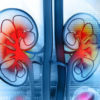 What Is Inflammatory Bowel Disease?
What Is Inflammatory Bowel Disease?
Inflammatory bowel disease is an umbrella term for several diseases that cause chronic swelling, inflammation, and often severe discomfort in the intestinal areas. IBD includes:
Crohn’s Disease
Crohn’s disease is an autoimmune condition that is marked by inflammation anywhere along the digestive tract. Most patients with Crohn’s disease have inflammation in the small intestine and upper portion of the large intestine.
Ulcerative Colitis
Ulcerative colitis is the inflammation or formation of ulcers in the colorectal area. Crohn’s disease or infection can cause this colitis.
Microscopic Colitis
This colitis swells the intestinal tract at a microscopic level and cannot be detected without a microscope.
These gastrointestinal diseases differ from irritable bowel syndrome, which is a chronic syndrome that describes a group of symptoms affecting the gastrointestinal tract. These symptoms can include bloating, cramping, abdominal pain, gas, and infrequent or too frequent bowel movements.
What Are the Symptoms of Inflammatory Bowel Disease?
IBD symptoms can come and go. They may be mild or severe, and they may appear suddenly or come on gradually. Symptomatic periods are called IBD flares. Many patients experience intermittent flare-ups followed by periods of remission.
IBD symptoms can include:
- Abdominal pain and discomfort
- Urgent need to have a bowel movement
- Constipation and/or diarrhea
- Bloating and gas
- Lack of appetite or unexpected weight loss
- Blood or discharge in stool
- Fatigue
- Joint pain
- Fever
- Itchy, red eyes
- Nausea and vomiting
- Skin rashes and sores
- Vision problems
Some people with IBD may experience just a few of these symptoms. If you or someone you care about has a combination of these signs, it is recommended to consult a gastroenterologist or general practitioner to rule out the disease.
What Are the Risk Factors for Inflammatory Bowel Disease?
Research is ongoing to find definitive causes of IBD, though gastroenterology specialists know that several risk factors can increase a patient’s chance of developing IBD. These include:
- Genetics:About 25% of people diagnosed with IBD have family members or recent ancestors with the disease.
- Immune system malfunction:The immune system in those with IBD misinterprets food and nutrients as infections or foreign substances, releasing antibodies and white blood cells to fight the dangerous objects, leading to inflammation and other IBD symptoms.
- Environment:Environmental triggers such as smoking, stress, and certain medications can increase the likelihood that a patient develops IBD.
How Is Inflammatory Bowel Disease Diagnosed?
Along with taking a complete medical history, complete blood count, and stool exam, a gastroenterologist may conduct additional diagnostic tests, such as:
- Colonoscopy: This test internally examines the large and small intestines with a small camera.
- Endoscopic ultrasound: This test identifies the presence or absence of swelling or ulcers in the digestive tract.
- Flexible sigmoidoscopy: Similar to a colonoscopy, this procedure examines the inside of the rectum and anus.
- Capsule endoscopy:In this test, the patient swallows a minuscule camera device that takes images as it travels along the digestive tract.
Contrast radiography, imaging scans, or an upper endoscope examination may also be used to determine the illness.
Are There Treatment and Lifestyle Changes That Can Help?
Treatment for IBD can vary depending on the specific disease diagnosed. Over-the-counter and prescription medications can help manage colorectal inflammation, including:
- Antibiotics
- Biologics that interrupt inflammatory responses
- Immuno-modulators
- Anti-diarrheal medications
- Non-steroidal anti-inflammatory medicines
- Vitamins and nutritional supplements
Some patients with Crohn’s disease cannot be treated with medications alone and will eventually need surgery to provide symptom relief.
Consult Skilled Physicians at Bergen Medical Associates
Bergen Medical Associates’ reputation for providing comprehensive care for all gastrointestinal diseases and conditions is backed by well over two decades of experience. Our skilled and board-certified gastroenterologists and medical specialists can help diagnose and treat inflammatory bowel disease in patients at convenient locations throughout northern New Jersey. For more information, request an appointment today or contact us for more information.










